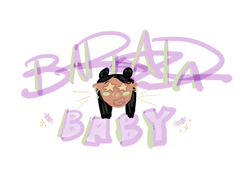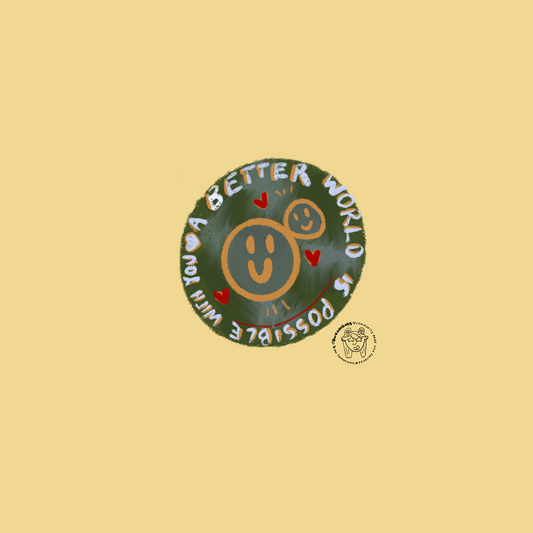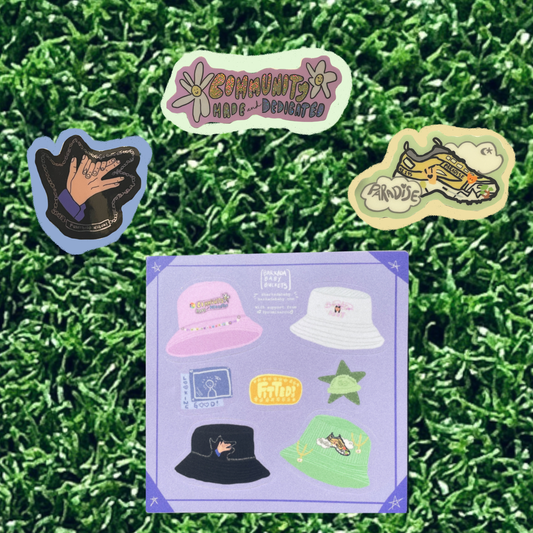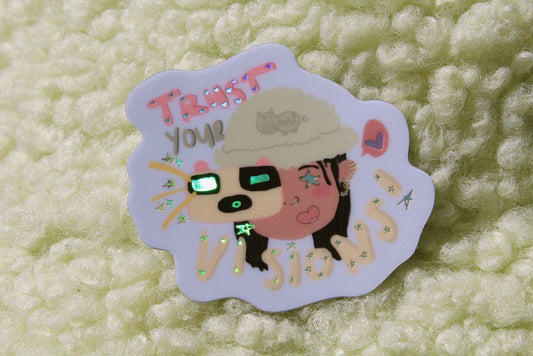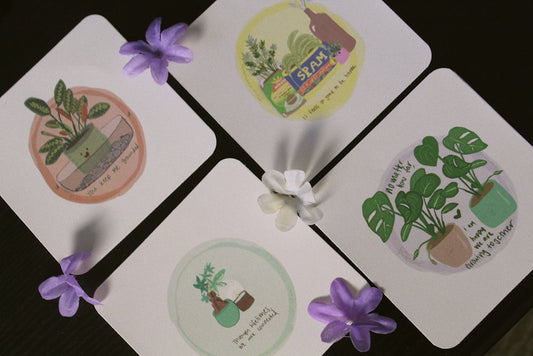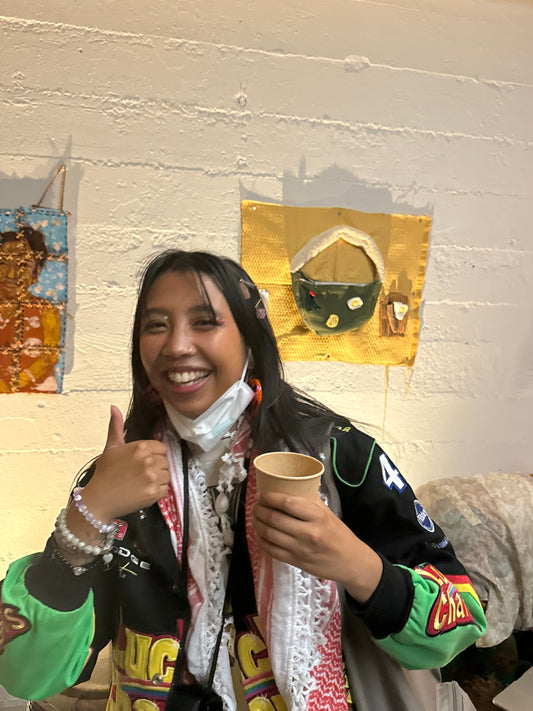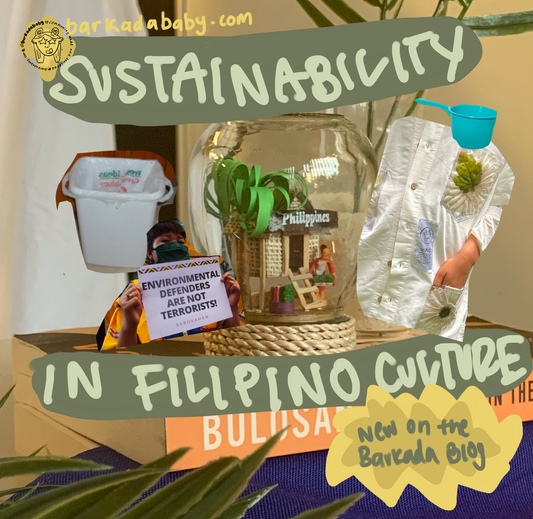As the climate crisis worsens, it can feel like we are helpless in changing a fate that seems uncontrollable. However, if we look back into history, we can see that sustainable ways of living have existed before. It is up to us to decide whether or not we want to honor those practices or not.
At Barkada Baby, we know that a lot of the earth's environmental issues can be traced back to overconsumption and resource exploitation caused by capitalism and colonization. This is partially why we choose to operate under a slow fashion model, ensuring that we are doing our part to reduce labor and environmental exploitation.
To us, slow fashion can look like using old or unwanted materials, not using factories or sweatshop labor, and not overworking ourselves and making excess items because of trends. We also see the earth and the land as equals, not something that can be owned which is a principle held by many Indigenous groups.

Upcycling, taking existing clothing and making it new, such as the button up seen in this photo, is one way we practice sustainability in fashion!
Another reason why we choose slow fashion and sustainability is because it is what we have been taught by our Filipino family members. Whether it be my mother sewing the holes in my clothes or having the same walis tambo for ages, Filipinos are no stranger to sustainable practices. Partially out of survival and partially out of the environment, Filipino culture holds so much knowledge on everyday sustainable living.
Walis Tambo, made of tiger grass. Source: Pinoy Entrepreneur
Listed below are 7 ways that Filipinos practice sustainability without even realizing, and how you can incorporate these into your everyday life:
The Plastic Bag to Trashbag Pipeline
Source: Grinning Planet
It is common to see plastic grocery bags used in bathrooms or bedroom trash bins. Plastic production is the fastest growing contributor to greenhouse gasses, which contribute to climate change. Reusing the plastic made could help reduce its impact and presence in oceans. Another way to reuse plastic is by using plastic to-go containers as next day's lunch containers!
The Tabo and Bidet Combo
Tabo. Source: One Down Media
It is very common to see a bidet and/or a tabo in a Filipino bathroom. By using the tabo, a small dipper handled bowl, many people replace using toilet paper which is also a lot cleaner. You can also use it to conserve water while showering, transfer dish water to your plants for watering, and use it to control how much water you use while doing your day or night routine. By using a bidet, you also only use 1/8th a gallon of water versus the 37 gallons of water used to make toilet paper.
Palengke Shopping

Pike Place Market Fruit Stand, which reminded me of ones in the Philippines. Source: Tianna Mae Andresen
In the Philippines, many people shop at local markets where vendors sell everything from crops and fish to overstock goods to homemade goods and clothing. Part of sustainability is re-examining our relationship with consumption! Consider shopping small, going to farmers markets, and skipping websites or stores that participate in fast fashion or overproduction!
Sending Balikbayan Boxes
Amy Guzman, who will be visiting her family in the Philippines, packs two balikbayan boxes full of things such as toothpaste, Spam, hand-me down clothes and rice at her home in Long Beach. (Allen J. Schaben / Los Angeles Times)
A common overseas Filipino tradition is sending home big boxes filled with goodies that those back in the Philippines might need. My family often sent clothing and shoes that didn't fit me to my cousins or local kids in the Philippines. Fashion and excess clothing are a huge contributor to labor and environmental exploitation. If you have clothes or shoes you don't want or need anymore, consider donating them to mutual aid organizations or second hand stores! Skip the landfill!
Tabi Tabi Po!
Video on Tabi Tabi Po by Esquire Mag
There are a lot of Filipino stories that view land and natural elements as spirits and gods/goddesses, which teaches us that we have non-human relatives too. The classic “tabi tabi po” said to avoid duwende, or mischievous spirits in the land, is one actionable way that Filipinos often ask permission to pass through or respect the land when they are treading through it. While these beliefs aren't exploitation proof, they do encourage building a respected relationship with the land and non-human relatives.
Community Organizing
Sabokahan Land Defender. Source: Sabokahan
With such a revolutionary history, it is no surprise that many Filipino communities across the world are involved with some sort of advocacy. Joining organizations that fight back against climate change, colonialism, imperialism, or capitalism (which are all huge contributors to climate change, with impacts hitting the Philippines) are just one way to commit yourself to a practice of systemic change and true collective sustainability!
Indigenous Ways of Being
Indigenous Lumad peoples from Mindanao. Source: Liyang Network
There are many ways indigenous peoples of the Philippines have practiced sustainability since the beginning of time such as using everything when eating animals or using banana leafs as modes of food preservation and weaving. Indigenous ways of being greatly influence many Filipinos today. They are also some of the most targeted groups of land defenders in the Philippines. There are many organizations, such as the Liyang Network, that are always looking to support forming solidarity between Indigenous and non-indigenous people.
- Donate to Land Back Indigenous movements or "pay rent" to the group whose lands you are on.
- Advocate for green spaces that we can walk around
- Learn about environmental issues in your area!
- Share knowledge: Check out a video Barkada Baby did with HiHo Kids teaching about sustainable fashion!
Since its inception, Barkada Baby has worked to support the community and give back to the community that gave so much to us. Whether it be supporting Barkada Baby and other sustainable fashion groups, we hope that you join us in the effort towards sustainability!
